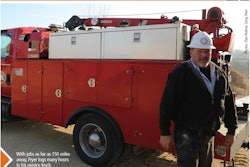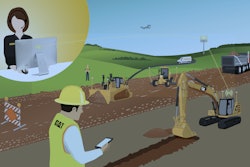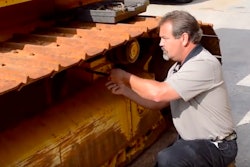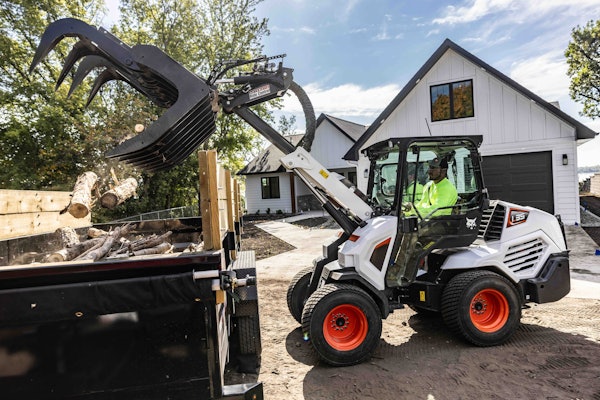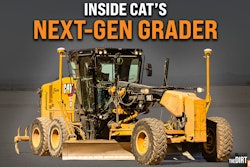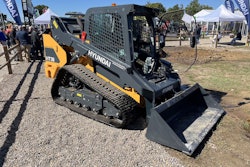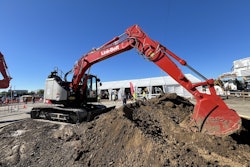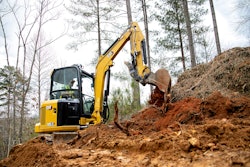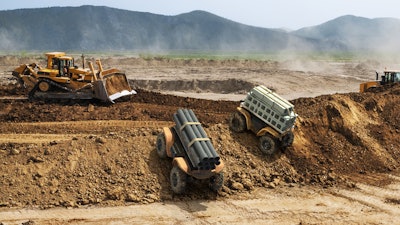 Honda’s Autonomous Work Vehicle is a prototype off-road vehicle that is a combination of Honda’s all-terrain vehicle (ATV) and emerging advanced autonomous technology. It was designed by Honda R&D Americas to bring efficiencies and increased safety to public, commercial, and consumer enterprises, such as construction, agriculture, search and rescue and firefighting.
Honda’s Autonomous Work Vehicle is a prototype off-road vehicle that is a combination of Honda’s all-terrain vehicle (ATV) and emerging advanced autonomous technology. It was designed by Honda R&D Americas to bring efficiencies and increased safety to public, commercial, and consumer enterprises, such as construction, agriculture, search and rescue and firefighting.There is an interesting discussion going on among members of the Association of Equipment Management Professionals. The question is who will be the heavy equipment technicians of the future and what skills will they need to succeed.
Old-school technicians started out changing fluids and filters, doing minor repairs and PMs. From there they might have moved up to doing engine and transmission rebuilds, then advanced to shop manager and eventually fleet manager.
But equipment is changing with every new advance in technology. Telematics has revolutionized truck dispatching and operations as well as machine monitoring. GPS machine control is automating earthmoving activities and robotics, and autonomous/semi-autonomous machine operation is now becoming a thing.
The question up for grabs is: Who will be in charge of all these technology assets, the cost of which are not inconsiderable? Who will evaluate them, buy them, train others to use them, maintain them and dispose of them? Is that going to be the old-school equipment manager or a new breed of technology manager?
A lot of this technology now seems to be in the hands of the operations folks, with not much input from maintenance, unless the technology is shop and equipment-related software. But one area of technology that I think will push technicians and fleet managers into a more sophisticated role is robotics and autonomous/semi-autonomous equipment. It’s becoming evident that robotics will play a bigger role in construction, and safety will be the big driver.
There are hundreds of trench-collapse and confined-space-related deaths every year. In less than a month this summer, six firefighters died in California fires. This past winter, an 81-year-old dozer operator died fighting a fire in Northern California.
It’s almost certain these tragedies will spur the growth of construction robots to work in hazardous environments. States will start mandating more robotic equipment for contractors, rescuers and emergency personnel working in these high hazard jobs. As that happens the industry will need a new breed of equipment technician capable of diagnosing and repairing robots, and that takes us considerably beyond the old fluids and filters mentality.
This isn’t an official position or policy at AEMP – just my opinion – but it is based on a lot of casual conversations in AEMP committees and networking events. But keep in mind that 10 years ago AEMP members were having similar conversations about the lack of a telematics standard. That impetus led to the creation of the AEMP Telematics standard, which is now an ANSI and ISO level certification supported by most OEMs. What’s discussed casually at AEMP today may be the reality of equipment management tomorrow.
If you would like to participate in the conversations about the future of technicians in our industry, go to the AEMP website and make plans to attend its next management conference and annual meeting in Orlando, Florida, March 19-21. The main purpose of these meetings is the education and professional development of technicians and fleet managers, and there’s a roster of education sessions dedicated to just that. So keep an ear to the ground, find out what the members are thinking, and you may just get a glimpse of where this is all headed.





